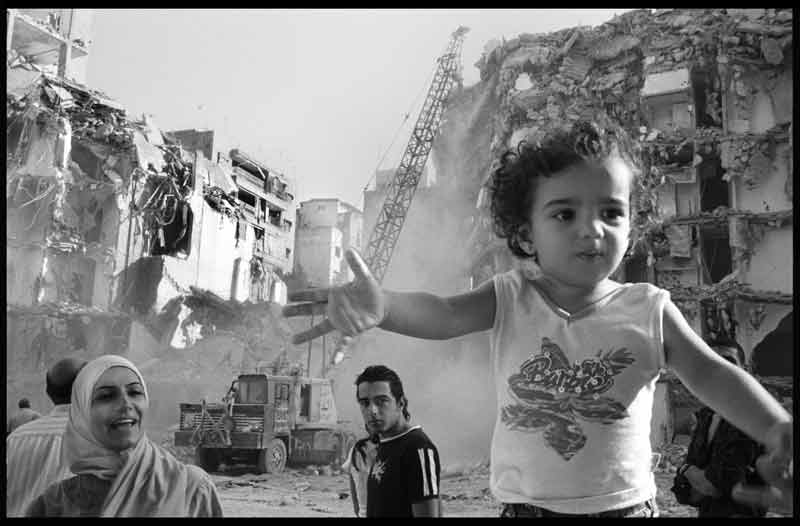Rania Matar, Brookline MA, USA
The Aftermath of War in Lebanon
The focus of my photography is on the Middle East, women and children especially. Lebanon in particular is interesting to me because of its key location between the West and the Arab world, witnessing a blend of Western and Arab cultures, of Christianity and Islam, of Sunni and Shiite Islam, of modernity and traditionalism. With the Middle East largely in turmoil, Lebanon bears the brunt of unresolved issues in the region, issues that become magnified in such a small country. The images submitted here were taken in the immediate aftermath of war, which Lebanon is just emerging from, providing an intimate look at the people in a war - torn area. As the war ended and faded it out of public attention, the people who lived and suffered through it, who lost homes, family members and friends are now long forgotten as they have to deal with the reality of their loss and the difficult task of rebuilding their shattered lives, while the world’s attention moved on to the next crisis. As such war is only half the story; the other half is often ignored and forgotten. It could be any war and any time. The effects on innocent people and the aftermath are the same: dealing with destruction, loss and utter human suffering.
In Lebanon, as is the case everywhere after war, the humanitarian situation was disastrous; the infrastructure of the country was destroyed; people lost their homes and whole areas were reduced to rubbles. However what struck me most, besides the massive destruction, was how quickly Lebanese people, now seasoned from the experience of war resume their lives again, how they pick up the pieces and move on to preserve their dignity, their children and their humanity.I was welcome in people’s homes, I was humbled by people’s resiliency and I was overwhelmed by the damage done to normal people’s lives. As such, in this photo essay I focus mainly on the people, the people who are looking for their belongings in the rubbles, the woman dealing with the loss of her mother, the man selling shoes where his store was, the kid looking for scrap metal in the destruction, and mostly the people who did not lose their humanity, hospitality and resiliency despite what they have been through. Maybe when we all start giving a face to the humans who bear the brunt of war as innocent civilians, wars would be averted.









